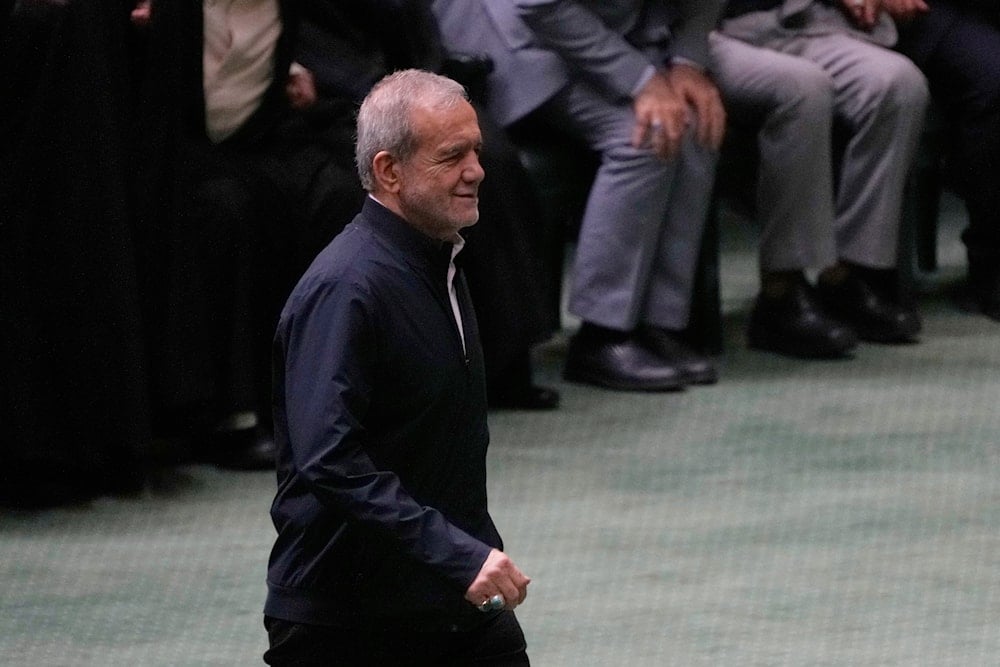Iran mobilizes relief efforts in response to Israeli aggression
Iranian President Pezeshkian directs urgent government response to Israeli aggression, and assures the public on fuel and food supplies.
-

Iranian President Masoud Pezeshkian walks towards the podium to speak during a memorial at the parliament in Tehran, Iran, on May 21, 2025. (AP Photo/Vahid Salemi)
Iranian President Masoud Pezeshkian has instructed key government bodies to urgently address the internal repercussions of the Israeli aggression, calling for coordinated efforts to protect citizens, safeguard vital infrastructure, and ensure public confidence during this critical period.
Chairing the weekly cabinet session on Wednesday, Pezeshkian emphasized that state institutions must operate with urgency to respond to the needs of the people. The meeting dedicated significant time to reviewing the impact of the recent Israeli escalation on Iran’s domestic situation, particularly on energy supplies, food security, and the resilience of critical services.
"You must act swiftly to meet the people’s needs and engage them in the national response," Pezeshkian told officials, adding, "Form special working groups to track the needs of those affected and establish an organized plan to mitigate any potential problems."
President calls for unity, reassures citizens
The Iranian president underscored the importance of national cohesion in the face of crisis. “With the support of the people, we will overcome any crisis,” he said, urging officials to show solidarity with the public and create the necessary conditions to stabilize daily life.
Pezeshkian reiterated the government’s full commitment to national security, directing agencies to prevent any threat that could destabilize the country, highlighting the vital role of institutions such as the Relief and Social Welfare Committee in delivering immediate support to those affected by the Israeli occupation’s attacks.
Following the cabinet session, Iranian Oil Minister Mohsen Paknejad confirmed that fuel distribution was proceeding without disruption, stating that “There are no problems whatsoever,” reassuring citizens of the sector’s readiness.
Similarly, Agriculture Minister Gholamreza Nouri affirmed that Iran’s strategic food reserves remain “in excellent condition,” and that there is no current need to tap into them. “Relevant authorities are actively working to secure essential goods and living needs for all citizens across every province,” he added.
The government’s coordinated response comes amid heightened alert across the country following intensified Israeli strikes. The situation is being closely monitored by Iranian authorities, with a focus on ensuring economic stability, uninterrupted public services, and national morale in the face of ongoing aggression.
On that note, the Israeli occupation has reportedly targeted al-Farabi Hospital in the western Iranian city of Kermanshah, marking a serious escalation in the ongoing war. The hospital strike followed a series of attacks on civilian and residential infrastructure across Iran by the Israeli occupation forces.
Iranian Foreign Ministry spokesperson Esmaeil Baghaei said attacking hospitals and residential areas was reportedly directed by the Israeli security minister, denouncing it as "a grave violation of international law and war crime."
"History will judge," Baghaei asserted, promising that "eternal shame awaits the regime's backers & apologists."

 3 Min Read
3 Min Read










